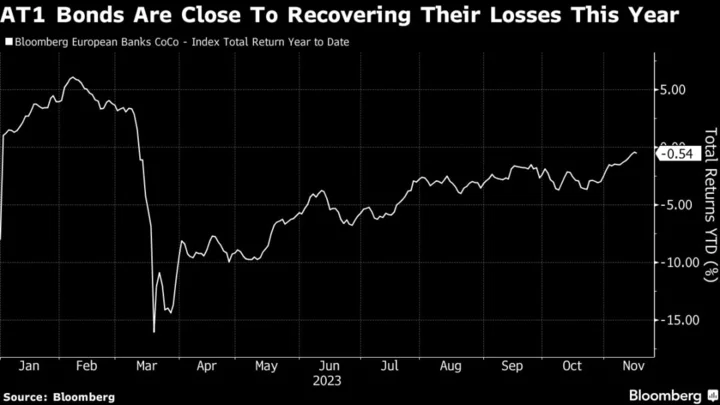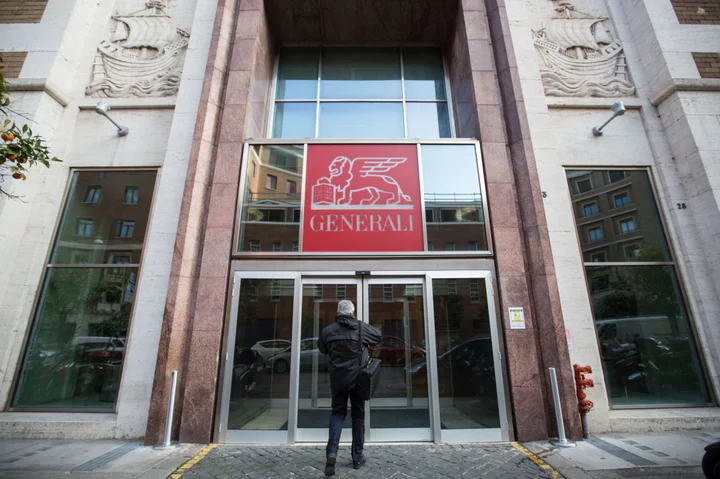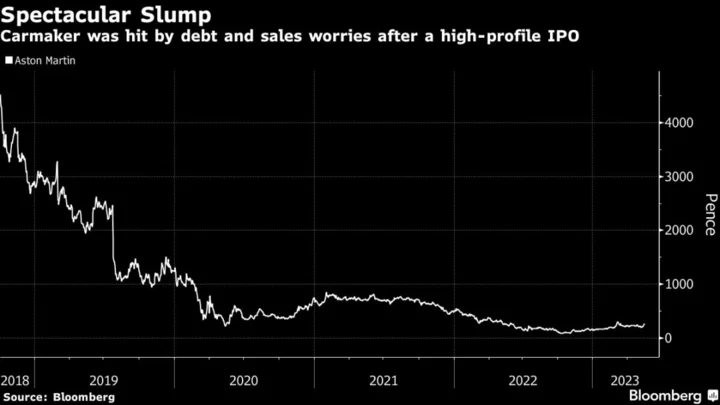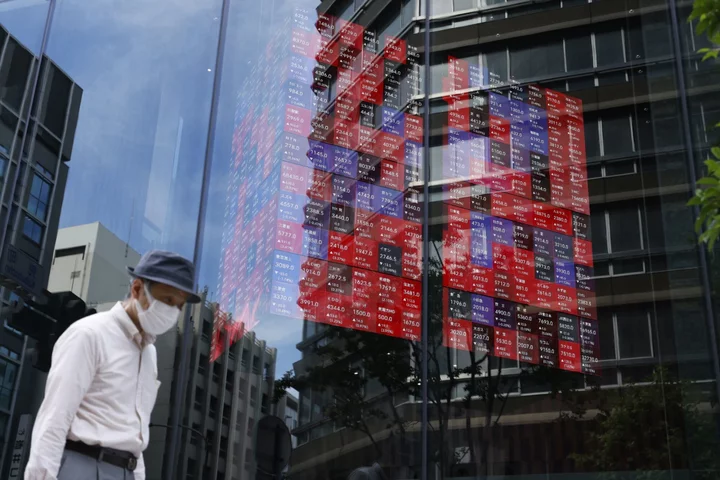One of the major investors caught in Credit Suisse’s historic wipeout of AT1s just bought similar securities sold by the bank’s new owner, UBS Group AG.
AllianceBernstein LP participated in the Swiss bank’s $3.5 billion sale last week, according to John Taylor, director of global multi-sector at the $650 billion asset manager.
The fund manager also turned overweight on additional tier 1 notes this month to get behind a turnaround in the risky bank debt.
“The question we had was would the Credit Suisse writedown mean that the asset class as a whole would shrink permanently?” Taylor said in an interview. “What we have seen instead is, there is clearly a recovery.”
In recent days he’s been vindicated. An index of European hybrid bank debt has nearly erased all its 2023 losses. Deals from UBS and Barclays Plc drew orders for at least 10 times the amount of securities on offer.
It’s a stunning comeback for an asset class that imploded when Credit Suisse left its bondholders with $17 billion of worthless notes. For banks, it’s a way to shore up the buffers against loan losses regulators require them to hold, because the notes count toward capital provisions.
Call Them AT1s or CoCos, Here’s Why They Can Blow Up: QuickTake
Back in March, as a crisis swept through regional lenders in the US and Credit Suisse was forced to be taken over by its cross-town rival over liquidity concerns, investors were nursing losses as high as 24%, according to a Bank of America index.
Since then, Credit Suisse’s absorption into UBS has reassured investors the combined entity is well-capitalized and can withstand an economic downturn. Most European banks have emerged stronger from a stress test on how they would fare in a recession, according to the European Banking Authority’s most recent assessment in July.
Meanwhile, investors are richly rewarded for the risk they will be wiped out if a bank gets into trouble, according to AllianceBernstein’s Taylor. The securities pay an average spread of 590 basis points more than government benchmarks, almost 100 basis points more than European junk bonds, according to Bloomberg index data. UBS’s notes yielded 9.25%. An index of lower-rated single-B rated European debt pays a smaller yield of 8.8%.
“Outside of AT1s, you have to go pretty far down the ratings spectrum to find debt offering the same kind of coupon,” he said. “We’d much rather own banks, including the AT1s.”









